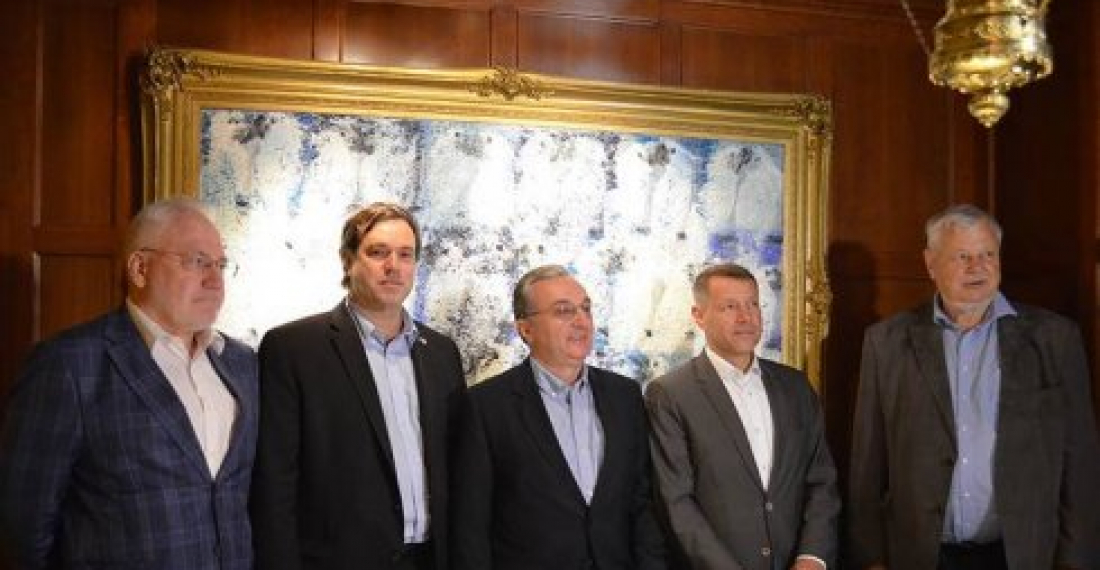Armenian foreign minister Zohrab Mnatsakanyan, and Azerbaijani foreign minister Elmar Mammadyarov, are in Washington to participate in talks aimed to unblock efforts to resolve the Nagorno-Karabakh conflict. The talks are being mediated by the co-Chair of the OSCE Minsk process - diplomats representing France, Russia and the United States. It is expected that the US National Security Advisor John Bolton will also meet the two ministers.
Ahead of the bilateral talks, the two ministers are also expected to hold seperate meeting with the co-Chair countries diplomats. Last night it was the turn of the Armenian foreign minister. The co-chair are expected to meet the Azerbaijani foreign minister today.
In the meantime US National Security Advisor John Bolton has tweeted that he was looking forward to meetings later this week with the foreign minister of Armenia and the foreign minister of Azerbaijan, to encourage continued dialogue between them.
Looking forward to meetings later this week with the Foreign Minister of Armenia and the Foreign Minister of Azerbaijan, to encourage continued dialogue between them. The United States stands ready to assist in advancing the cause of peace in the region.
— John Bolton (@AmbJohnBolton) 18 June 2019
Commonspace.eu political editor said in a comment that "on both sides there has been an effort to downplay the chances of a breakthrough during the talks. On the Armenian side the talks have been described as part of the regular exchange of views between the sides, whilst on the Azerbaijani side media outlets close to the government have been saying that it is difficult to see the talks in Washington providing a breakthrough since Moscow will not look positively at this. However, the talks do indicate that there exists some convergence of views by the sides on how to take the process forward. despite recent incidents on the line of contact. Four soldiers - two on each side - were reported killed in the last three weeks since the co-Chair last visited the region, and this has cast a shadow on the talks. Yet there appears still to be enough willingness of the sides to move the negotiations forward for the Washington meeting to be a logial and effective next step in the long journey to resolve the Karabakh conflict"
source: commonspace.eu
photo: Armenian foreign minister Zohrab Mnataskanyan with the diplomats representing France, Russia and the United - the three co-chair countries of the OSCE Minsk Process on Karabakh in Washington DC on 18 June 2019. (picture courtesy of the press service of the Armenian foreign ministry)






